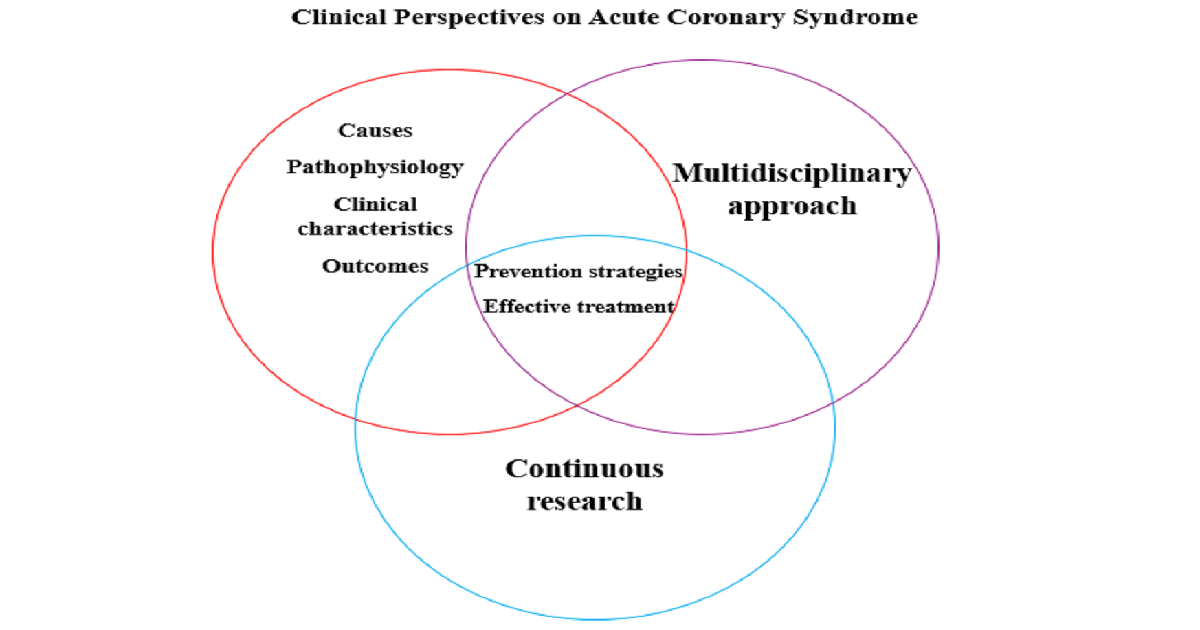- 2.9Impact Factor
- 5.2CiteScore
- 19 daysTime to First Decision
Clinical Perspectives on Acute Coronary Syndrome
This special issue belongs to the section “Cardiovascular Medicine“.
Special Issue Information
Dear Colleagues,
It is our pleasure to invite you to submit an article for this Special Issue titled “Clinical Perspectives on Acute Coronary Syndrome”.
Approximately one-third of all deaths globally are due to ischemic heart disease, with acute coronary syndrome (ACS) being the leading cause of mortality. A thorough understanding of the causes of ACS, its pathophysiology, clinical characteristics, and potential outcomes is essential for every medical professional. Despite the tremendous progress seen in recent decades, continuous and meticulous research is required for the development of rigorous secondary prevention strategies as well as effective treatment options.
The aim of this Special Issue is to highlight the multidisciplinary approach needed to expand our clinical knowledge on ACS. Combining the expertise of cardiologists, interventional cardiologists, and cardiovascular surgeons, as well as researchers and other medical professionals, is crucial in developing adequate evidence-based treatments, creating further research lines, and delivering the best patient care. In this Special Issue, we would like to emphasize the importance of diagnosis and risk stratification tools for ACS, the role of biomarkers, as well as management and reperfusion strategies.
We encourage the submission of all types of manuscripts, including original studies, reviews, and case reports.
Dr. Marius Rus
Dr. Massimo Mancone
Guest Editors
Manuscript Submission Information
Manuscripts should be submitted online at www.mdpi.com by registering and logging in to this website. Once you are registered, click here to go to the submission form. Manuscripts can be submitted until the deadline. All submissions that pass pre-check are peer-reviewed. Accepted papers will be published continuously in the journal (as soon as accepted) and will be listed together on the special issue website. Research articles, review articles as well as short communications are invited. For planned papers, a title and short abstract (about 250 words) can be sent to the Editorial Office for assessment.
Submitted manuscripts should not have been published previously, nor be under consideration for publication elsewhere (except conference proceedings papers). All manuscripts are thoroughly refereed through a single-blind peer-review process. A guide for authors and other relevant information for submission of manuscripts is available on the Instructions for Authors page. Journal of Clinical Medicine is an international peer-reviewed open access semimonthly journal published by MDPI.
Please visit the Instructions for Authors page before submitting a manuscript. The Article Processing Charge (APC) for publication in this open access journal is 2600 CHF (Swiss Francs). Submitted papers should be well formatted and use good English. Authors may use MDPI's English editing service prior to publication or during author revisions.
Keywords
- acute coronary syndrome
- ischemic heart disease
- multidisciplinary approach
- interventional cardiology
- new research lines
- diagnosis and risk stratification
- biomarkers
- reperfusion strategies

Benefits of Publishing in a Special Issue
- Ease of navigation: Grouping papers by topic helps scholars navigate broad scope journals more efficiently.
- Greater discoverability: Special Issues support the reach and impact of scientific research. Articles in Special Issues are more discoverable and cited more frequently.
- Expansion of research network: Special Issues facilitate connections among authors, fostering scientific collaborations.
- External promotion: Articles in Special Issues are often promoted through the journal's social media, increasing their visibility.
- Reprint: MDPI Books provides the opportunity to republish successful Special Issues in book format, both online and in print.


